Category Archive for "Transition and Sustainabuility"

“The Informatics and Data Science for Public Health: Sustainment Plan for Skilled Labor Force Development”
Curatio International Foundation publishes the report “The Informatics and Data Science for Public Health: Sustainment Plan for Skilled Labor Force Development”

Sustaining Public Health Gains after Donor Transition: What can we learn about Georgia?
Understanding how and why Georgia was (or was not) able to sustain coverage with the selected health interventions after transition and identify the enablers and barriers to this. To achieve this objective following research questions were defined:
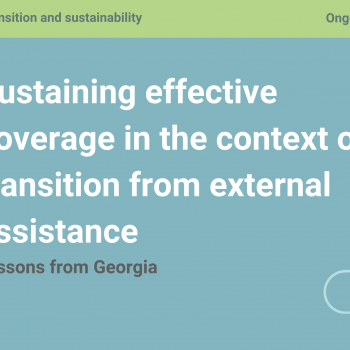
Sustaining effective coverage in the context of transition from external assistance – Lessons from Georgia
Six country case studies examining how governments have responded (or not) to reductions in donor funding through changes in the service delivery architecture, health financing arrangements, information systems, and governance arrangements, and how these changes have or have not influenced whether effective coverage of priority interventions previously funded by donors is sustained or not.
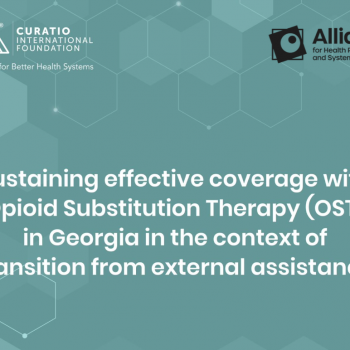
New case study: Sustaining effective coverage with Opioid Substitution Therapy (OST) in Georgia in the context of transition from external assistance
why Georgia was able to sustain and increase adequate coverage with Opioid Substation Therapy (OST) previously funded by the Global Fund and identify the critical enablers.
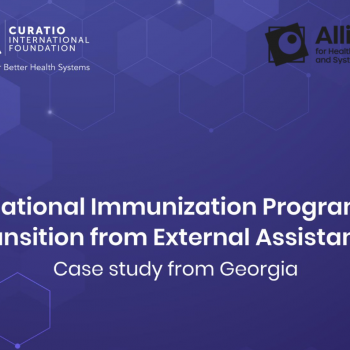
New case study: National Immunisation Program Transition from external assistance
The CIF research team publishes a new case study entitled “National Immunization Program (NIP) Transition from external assistance – Case Study from Georgia”.
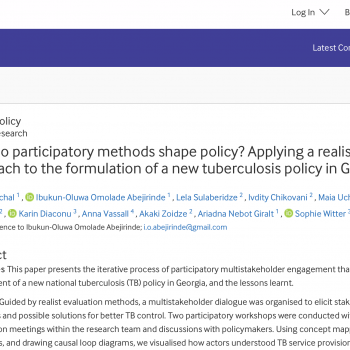
Article: How do participatory methods shape policy? Applying a realist approach to the formulation of a new tuberculosis policy in Georgia
The paper presents the iterative process of participatory multistakeholder engagement that informed the development of a new national tuberculosis (TB) policy in Georgia, and the lessons learned.
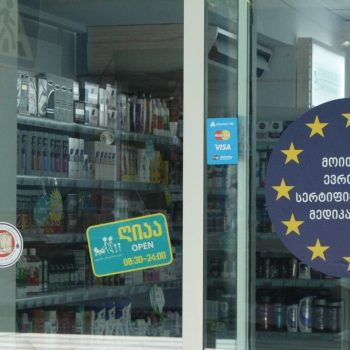
Big Pharma Greed and Artificial Prices – Knocking on Door to Limit Access to HIV Medicines in Georgia
They produce medicines that can save lives and at the same time artificially restrict access to these drugs for financially deprived people and for countries that fall outside their commercial interests.
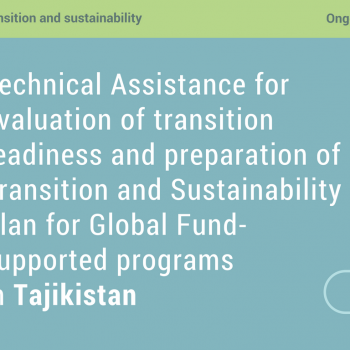
Technical Assistance for evaluation of transition readiness and preparation of Transition and Sustainability Plan for Global Fund-supported programs in Tajikistan
In June 2018 CIF initiated a new project with the financial support of The Global Fund. The overall goal of the CIF assignment is to support the Country Coordination Mechanism of Tajikistan (CCM) in assessing country preparedness for Transition and developing the Transition and Sustainability Plan based on this assessment and key steps identified.
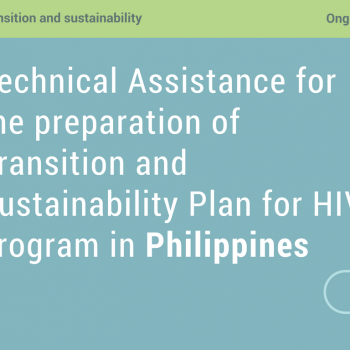
Technical Assistance for the preparation of Transition and Sustainability Plan for HIV program in Philippines
Since May 2018 Curatio International Foundation implements a technical assistance for the Philippines to prepare Transition and Sustainability Plan for HIV program. The overall goal of the given assignment is to support the Department of Health and the Philippine National AIDS Council to develop the Transition and Financial Sustainability Plan based on the evaluation of remaining steps required to strengthen transition preparedness. The project is fulfilled in June 2018.
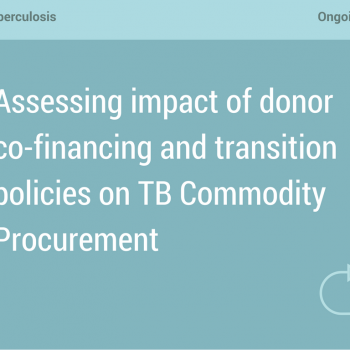
Assessing impact of donor co-financing and transition policies on TB Commodity Procurement
The assignment will last 10 months and aims to assess positive and negative implications of The Global Fund’s (TGF) Sustainability, Transition and Co-Financing Policy (STCP) that may have on TB commodity procurement practices on a country level in EECA region.
